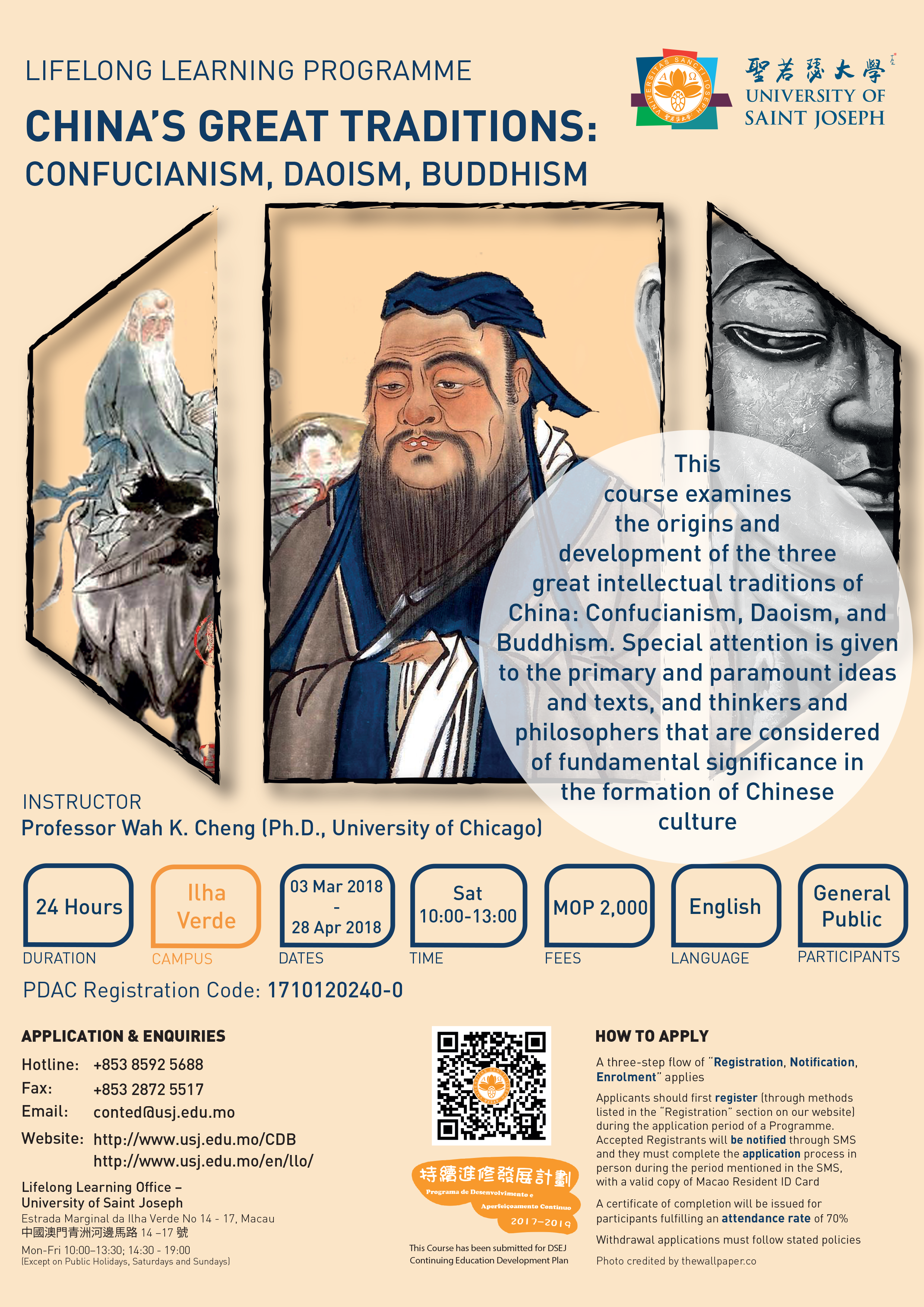China’s Great Traditions: Confucianism, Daoism, and Buddhism 中國思想三大傳統:儒家、道家及佛教
Lifelong Learning
Anticipated learning outcomes:
- Acquire basic but solid knowledge of Chinese history, culture, and society before the modern period
- Examine and assess some of the core elements and forces that influenced and continue to influence China’s historical and cultural development through the ages
- Evaluate the connectedness of China’s historical past and its modern prospects
Recommended textbooks and references:
De Bary, William Theodore, Irene Bloom, and Joseph Adler. Sources of Chinese Tradition, Vol. 1. 2nd ed. Columbia University Press, 2000.
Huang, Ray. China: A Macro History. Armonk, N.Y: M.E. Sharpe, 1988.
Mote, Frederick W. Intellectual Foundations of China. 2nd ed. Studies in World Civilization. New York: Knopf, 1989.
Roberts, J. A. G. A History of China. Houndmills, Basingstoke, Hampshire; New York: Palgrave Macmillan, 2011.
Ropp, Paul S., ed. Heritage of China: Contemporary Perspectives on Chinese Civilization. Berkeley: University of California Press, 1990.
Wills, Jr., John E. Mountain of Fame: Portraits in Chinese History. Princeton University Press, 2012.
HOW TO APPLY
A three-step flow of “Registration, Notification, Enrolment” applies.
Applicants should first register (through methods listed in the “Registration” section on our website) during the application period of a Programme. Accepted Registrants will be notified through SMS and they must complete the application process in person during the period mentioned in the SMS, with a valid copy of Macao Resident ID Card.
A certificate of completion will be issued for participants fulfilling an attendance rate of 70%.
Withdrawal applications must follow stated policies.
Remark: Programmes may be cancelled due to insufficient registration.










